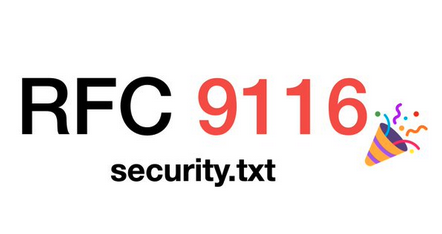The Internet Engineering Task Force (IETF) has published RFC 9116 for the security.txt file, whose goal is to make it easier for researchers to responsibly disclose the vulnerabilities they find.
Edwin “EdOverflow” Foudil and Yakov Shafranovich of Nightwatch Cybersecurity are the authors of the security.txt standard, for which a draft was submitted in 2017. However, IETF noted that RFC 9116 has an “Informational” status and it will not become an actual internet standard.
 A security.txt file should be placed in a location where it is easy to find — the root or /.well-known/ directories are recommended — and it should include information on the organization’s vulnerability disclosure process.
A security.txt file should be placed in a location where it is easy to find — the root or /.well-known/ directories are recommended — and it should include information on the organization’s vulnerability disclosure process.
The file must include an email address where security flaws can be reported, and a date when the information in the file should be considered “expired.”
It can also include the encryption key that can be used by the reporter to securely transmit the information, a link to the organization’s security policy, the URL of the security.txt file, a vulnerability acknowledgements page, and it can even link to security-related job openings within the organization.
A security.txt file has been implemented by major organizations such as Google, Facebook and GitHub, as well as many government agencies.
An analysis conducted in late 2020 showed that nearly 3,000 of the 666,000 most popular websites on the Alexa list had a security.txt file. Separate research showed that, as of April 2021, roughly 1% of the Alexa Top 100K, 3% of the Top 10K, and 15% of Top 100 websites had a security.txt file.
Foudil and Shafranovich have set up a website where owners and administrators can easily generate a security.txt file for their sites.
While security.txt can be very useful for reporting vulnerabilities to a company, the authors of RFC 9116 admit that the file could also be abused by malicious actors. An attacker that has compromised a website can, for instance, modify the file so that security reports are sent to them instead of the site’s owner. Digitally signing the file can address some of these security risks.
Related: PCI Data Security Standard v4.0 Released to Address Emerging Threats
Related: Internet Engineering Task Force Proposes Standard for Network Time Security
Related: IETF Publishes TLS 1.3 as RFC 8446












